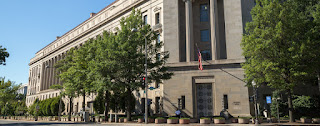(Update — July 8, 2020) Acting DHS Deputy Director Ken Cuccinelli suggested in an interview that F1 students will generally be able to maintain status in hybrid programs so long as their classes are not entirely online. Harvard and MIT have filed a lawsuit against the policy arguing that the Government violated the Administrative Procedures Act in its implementation. We will update the site with more information as it becomes available.)
On July 6, 2020, the Student and Exchange Visitor Program (SEVP) announced modifications to temporary exemptions it carved out for F1 and M1 students taking online courses during the coronavirus (COVID-19) pandemic [PDF version].
SEVP will not allow F1 and M1 students to take a full online course load this fall and remain in the United States. For its part, the U.S. Department of State (DOS) will not issue F1 or M1 visas to students enrolled in schools and/or programs that are fully online for the fall semester, nor will U.S. Customs and Border Protection (CBP) allow such students to enter the United States.
Students who are currently in the United States on lawful F1 or M1 status at schools that are only offering online courses will have two options. These F1 or M1 students must either transfer to a school offering in-person instruction or depart the United States. An F1 or M1 student taking a fully online course load will be subject to immigration consequences, including the initiation of removal proceedings for failure to maintain status.
F1 students who are attending schools operating under normal in-person class conditions are bound by existing regulations regarding online courses. F1 students may take a maximum of one class, or three credit hours, online.
F1 students attending schools adopting a hybrid model of some online and some in-person classes will be permitted to take more than one class or three credit hours online. Schools running hybrid programs must certify to SEVP through the student's Form I-20, Certification of Eligibility for Nonimmigrant Student Status, that the program is not entirely online, that the student is not taking an entirely online course load for the semester, and that the student is taking at least the minimum number of classes required to make progress in his or her degree program. The ICE news release does not specify what proportion of in-person versus online courses will be acceptable in hybrid programs . The exceptions in this paragraph do not apply to F1 students in English language training programs or M1 students pursuing vocational degrees, neither of which are permitted to enroll in online courses.
SEVP states that its new rules will be published in the Federal Register in the near future. We will update the website with more information as it becomes available. Students who are unsure of their school's plans should consult with their DSO for more information. Students who may need to transfer programs to maintain student status or otherwise have questions about maintaining status should consult with their DSO and, if necessary, with an experienced immigration attorney.
You may learn more about student visas in our full section on site [see category].
Please visit the nyc immigration lawyers website for further information. The Law Offices of Grinberg & Segal, PLLC focuses vast segment of its practice on immigration law. This steadfast dedication has resulted in thousands of immigrants throughout the United States.
Lawyer website: http://myattorneyusa.com

